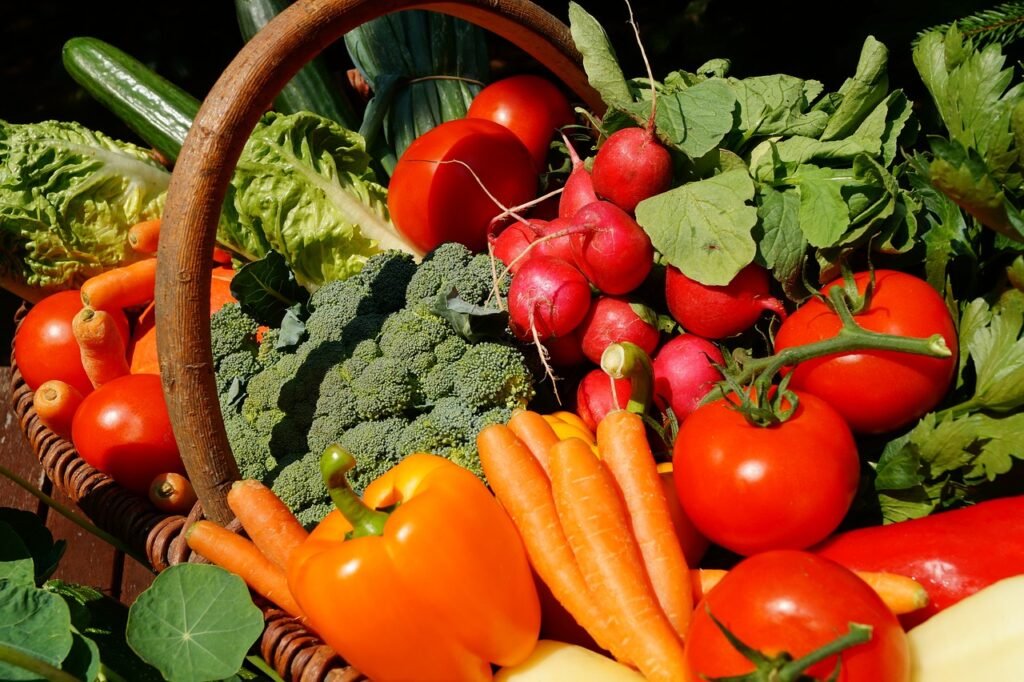- About Organic Food
- Pesticides and Other Chemicals in Organic Food
- Organic Food Industry Growth
- Reasons to Buy Organic Food
- Organic Foods and Nutrients
- Organic Food and Ethics
Organic farming is the production of food without the use of synthetic chemicals or genetically modified ingredients.
• Organic food is not necessarily completely chemical-free, but pesticide residues will be significantly lower than products made with synthetic chemicals.
• When choosing organic foods, choose those labeled ‘certified organic’ by one of the recognized agriculture, fisheries, and forestry certification bodies.
• Organic farming is better for the environment and more sustainable
About Organic Food
Organic farmers and food producers grow food without using synthetic chemicals like pesticides and artificial fertilizers. They do not use genetically modified (GM) ingredients or irradiate the food.
Animal welfare and environmental sustainability are important issues for organic farmers. The term ‘organic’ can also cover animal products. For example, eggs certified as organic are free-range rather than from caged (battery) hens.
Types of organic foods available in Australia include fruit and vegetables, dried legumes, grains, meat and meat products, dairy products, eggs, honey, and some processed foods.
Organic Farming
Animals raised using organic methods are treated humanely and with respect. For example, chickens are free-range and not kept in cages, and cows are not kept in feedlots. Animals are not fed any growth-regulatory drugs, steroids, hormones, or antibiotics. However, animals can be treated with vaccines to prevent disease.
Organic farming also involves protecting the environment and working in harmony with existing ecosystems – including conserving water, soil, and energy and using renewable resources and natural farming cycles.
Traditional farming methods are often used, such as crop rotation and combining crops and livestock to prevent soil nutrient loss.
Pesticides and Other Chemicals in Organic Food
Organic food is not necessarily completely chemical-free. They may be grown on land not previously used for organic food production and may, therefore, contain chemical residues. However, organic food has significantly lower pesticide residues than conventional farming, where food is prepared with synthetic chemicals.
In addition, some naturally occurring pesticides are approved for use in organic farming and include:
• Pyrethrin’s
• Light oil
• Copper
• Sulfur
• Biological agents (such as Bacillus thuringiensis).
Organic Food Industry Growth
Australia’s organic food industry is booming. In 2021, the retail value of the organic market was estimated to be at least $2.3 billion. Australia has seen a 13% compound annual growth rate since 2012, with the number of certified organic operations increasing by 38% since 2011.
Consumer demand for organic food is increasing at a rate of 20 to 30% per year. It is estimated that more than 6 in 10 Australian households now buy organic food on occasion. Popular products include fruits and vegetables, beef, non-alcoholic beverages, nuts, and ready meals.
Reasons to Buy Organic Food
Most people buy organically grown food products because they are concerned about pesticide, additive, antibiotic, or other chemical residues and believe that organic food is healthier.
Other factors include – concerns over the impact of conventional farming on biodiversity and the environment and the ethical treatment of livestock.
Organic Foods and Nutrients
Several studies have compared the nutritional content of organically and conventionally grown plants, and most have shown no significant differences in key vitamin and mineral content. Although the differences are small – studies have shown that some organic foods include:
• Low nitrate levels
• High vitamin C levels
• High levels of certain minerals (such as phosphorus, magnesium, and iron).
Organic Food and Ethics
Organic food promotes more humane treatment of animals, as well as providing meat free from hormones and antibiotics.
Also, some people are concerned about the long-term health, economic, and environmental consequences of GM foods and choose organic food in support of an industry that does not use GM techniques.
Organic food promotes healthier and more sustainable use of natural resources. Modern conventional farming methods include the use of excessive chemicals and planting only one crop more than once (monocropping). This has reduced soil fertility and increased salinity and blue-green algae growth in waterways over the years.
Organic farmers try to reduce environmental damage by diversifying their crops, physical weed control, and using animal and green manures.

